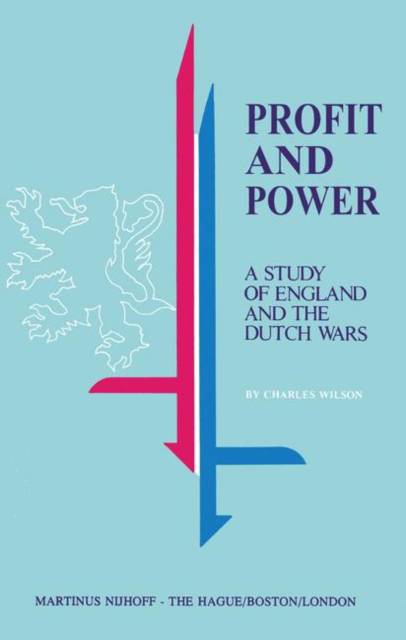
- Afhalen na 1 uur in een winkel met voorraad
- Gratis thuislevering in België vanaf € 30
- Ruim aanbod met 7 miljoen producten
- Afhalen na 1 uur in een winkel met voorraad
- Gratis thuislevering in België vanaf € 30
- Ruim aanbod met 7 miljoen producten
Zoeken
€ 98,99
+ 197 punten
Omschrijving
Historical explanations need to keep step with the march of research if they are not to degenerate into empty cliches. It has long been a commonplace of 17th century history that the Anglo-Dutch Wars were the product of 'commercial rivalry'. This essay, first published twenty years ago, attempted to analyse and redefine this overworked traditional concept so as to explain more precisely how it led to naval wars between the Dutch and the English. Two idees fixes of contemporary English thought seemed especially significant; one was the persistent consciousness of English inferiority and backwardness in economic affairs when compared with the Dutch; the other, compounding this, was the equally persistent conviction that strategically, England seemed well placed to wreck the Dutch maritime economy and bring the Republic to her knees in a naval war. These obsessive beliefs combined naturally with the specific influences and motives of powerful political and commercial lobbies to stoke the fires of aggression. Failing over several decades to make any visible progress by more or less peaceful policies, they turned, first, to economic warfare by means of propaganda and pseudo-legal claims to maritime sovereignty; finally (in 1652) to all-out eco- nomic and naval warfare.
Specificaties
Betrokkenen
- Auteur(s):
- Uitgeverij:
Inhoud
- Aantal bladzijden:
- 170
- Taal:
- Engels
Eigenschappen
- Productcode (EAN):
- 9789024720835
- Verschijningsdatum:
- 7/07/1978
- Uitvoering:
- Paperback
- Formaat:
- Trade paperback (VS)
- Afmetingen:
- 140 mm x 216 mm
- Gewicht:
- 217 g

Alleen bij Standaard Boekhandel
+ 197 punten op je klantenkaart van Standaard Boekhandel
Beoordelingen
We publiceren alleen reviews die voldoen aan de voorwaarden voor reviews. Bekijk onze voorwaarden voor reviews.







